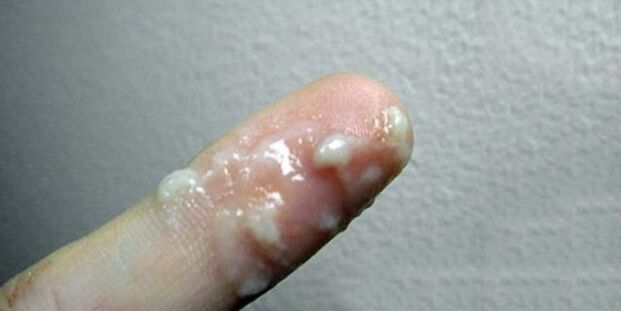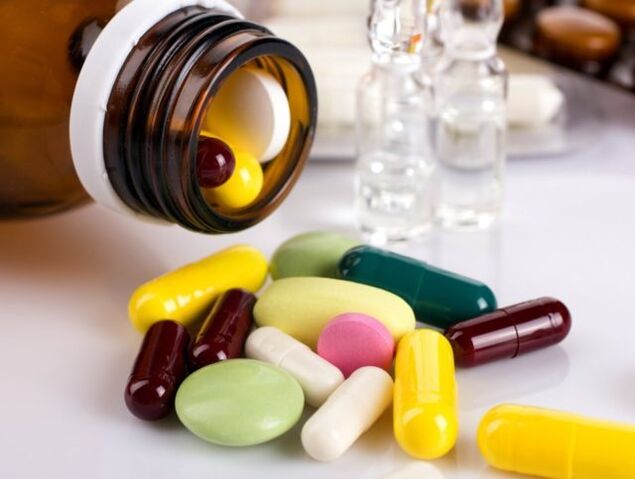As long as the human body, and especially that of the man, does not fail and does not signal bad health with pain in any part of it, it seems that this representative of the stronger sex will always be young and healthy and has minor ailments and aches the symptoms of which will go awayitself. But according to statistics, the first signs of prostatitis in men appear insignificant and, accordingly, are ignored by men themselves, which ultimately has quite serious consequences. What to do with the first manifestations and signals of the development of prostatitis, how to prevent the nature of the disease from exacerbating and prevent undesirable consequences, we will consider later in this article.
general information
According to statistics, prostatitis is the most common all-male urological disease, which is inflammation of a component of the reproductive system such as the prostate below the bladder. In simple terms, the prostate is located near and covering the urethra. Inflammation of the prostate provokes its enlargement, as a result of which it presses on the urinary canal, reducing the lumen located in it, as a result of which the bladder does not completely empty when urinating.
A few decades ago, prostatitis was considered a disease of mature age, as this disease was observed in the stronger sex after 45 years, while today signs of prostatitis can also appear in young (under 30) men.
The functions of the prostate in a man's body are:
- produces a secret that makes the sperm more fluid and helps to extend the duration of sperm activity;
- produces prostaglandins and other drugs and hormones;
- ensures a sufficient rate of sperm release;
- protects the sperm from getting into the urine.
The main problem that arises as a result of the development of prostatitis is that with an increase in the volume of the gland, even after urination, more and more urine remains in the bladder, poisoning the man's body. Therefore, even minor symptoms of inflammation should not be ignored in order not to trigger the disease into more serious consequences.
causes
The results of long-term clinical studies have made it possible to identify the main causes of the disease and the most common groups of people suffering from prostatitis.
The risk group includes men:
- sitting down for long periods of time and leading a sedentary lifestyle;
- are overweight;
- Promiscuous sexual intercourse, which can result in damage from sexually transmitted infections;
- suffer from frequent constipation, which provokes the spread of microorganisms and bacterial inflammation of the prostate;
- excessive strain on the groin muscles due to injury or work-related reasons, such as: B. Driver;
- prone to frequent hypothermia, hormonal disorders, as well as to those whose sex life is not regular.
Signs of prostatitis in men
Every serious illness warns of its initial stage of development with certain signals. If you do not take these into account and do not seek advice from a specialist in good time, you will lose valuable time that you can use to treat the disease right from the start.
Often times, the disease proceeds without clear signs and without due attention turns into a chronic form that is difficult to treat.
With certain signals, it warns of the initial stage of the development of a serious disease
But if a person is attentive to the changes that are occurring in him, then he will surely notice the first symptoms of inflammation in the following manifestations of prostatitis in men:
- Frequent need to urinate at night.
- The process of emptying the bladder itself is difficult, with a characteristic weak pressure, intermittent or split stream, painful and longer than normal.
- A man feels a burning sensation when urinating, after which a feeling of full bladder remains.
- Painful sensations when defecating.
- Decreased erection quality, tiredness, involuntary erections at night.
- Chills due to increased body temperature.
- Highlight a specific color.
Symptoms of prostatitis
Prostatitis caused by microorganisms (bacterial) can usually occur in acute and chronic forms, each of which is characterized by special symptoms:
- When prostatitis is observed in acute form, a significant increase in body temperature is a common phenomenon, the pain extends not only to the prostate area, but also radiates to the groin and even the lumbar region, men note the presence of difficult and frequent onesUrination, decrease in libido;
- The chronic course of prostatitis is characterized by characteristic pain in the pelvic and perineal area, the presence of blood clots in the semen and painful ejaculation, frequent nocturnal urge to urinate, which is accompanied by burning sensation and pain.
What is special about acute and chronic inflammation?
Acute prostatitis is much less common than chronic prostatitis. A feature of the manifestation of the acute form of the disease is a characteristic severe pain, dislocated in the perineum and aggravated during urination and defecation. In addition, there may be persistent discharge from the urinary tract and a decrease in erection. The temperature can rise to 38-39 degrees. In severe cases, acute urinary retention can cause severe poisoning of the body.
Chronic prostatitis has symptoms similar to other urological diseases and sometimes even asymptomatic. However, it can be recognized by slight and quickly disappearing pain in the perineal area as well as in the groin and pubic area. The duration and quality of sexual intercourse changes significantly, and when urinating in the morning there may be sediment in the form of white flakes in the urine. A characteristic discharge can occur after emptying the bladder.
Follow
If you do not recognize a disease such as prostatitis and do not start treatment in a timely manner, the consequences can be very deplorable - from violations of the patient's usual lifestyle, provoked by dependence on the toilet, constant unpleasant and painful sensations, poisoning from poisoning with theproducts of the body's own vital activity contained in standing urine up to considerable disturbances in the genital area, up to impotence and infertility.

In addition, prostatitis in a man reduces the quality of sperm and therefore the chance of conception. Pathological processes that occur in the prostate can cause its abscess, kidney failure and inflammation of other organs of the genitourinary system.
Pain syndrome
Whatever form prostatitis takes, this process is necessarily accompanied by pain syndrome, and the pain often radiates to the scrotum, sacrum, abdomen, back and pelvic region. The prostate itself cannot cause such severe pain, but the nerve endings of other pelvic organs react sharply to the inflammatory processes localized in it.
Specific discharge
Discharge from the urinary tract with prostatitis can be of the following types:
- Milky colored, thick discharge - signal the development of an inflammatory process in the prostate.
- Uncontrolled discharge of sperm from the urethra - indicates the transition from prostatitis to a chronic form or the development of other diseases of the genitourinary system.
- Purulent discharge occurs with sluggish prostatitis, but when combined with an elevated temperature, it is a symptom of the transition of the disease to an acute form.
- With bacterial prostatitis caused by microorganisms, the infection of which occurs mainly through sexual contact, a purulent discharge with an admixture of mucus is observed.

Treatment of prostatitis
Complete healing of prostatitis is a fairly lengthy process that requires an integrated approach. First of all, with the help of laboratory tests, a diagnosis is carried out to determine the nature of the disease, ultrasound scans, MRI and tomography are prescribed, with the help of which they will clearly determine the presence of this particular disease, and not another with similar symptoms.
Once the diagnosis of prostatitis is confirmed, the urologist will prescribe the necessary therapy, which includes:
- Medicines that improve blood circulation.
- Medication to relieve pain.
- Anti-inflammatory drugs.
- In the event of symptoms of intoxication, detoxification solutions and electrolytes are prescribed.
- Additional activities may include diet food, exercise therapy, and sedatives.
Surgical treatment is indicated only for prostate abscesses or complete blockage of the drainage from the bladder.

How to treat prostatitis at home
Traditional methods of treating prostatitis include using natural remedies such as:
- Pumpkin seed.
- Broth and enemas made from chestnut peels.
- Tincture of ripe chestnuts.
- Freshly squeezed juices from carrots, beets, cucumbers, asparagus.
- Elderberry juice (black).
- Prostate massage.
However, it should be remembered that such means are auxiliary, the treatment process is quite tedious and must be monitored by a qualified urologist.
Prostatitis prevention
Every man can independently carry out preventive measures:
- pay attention to physical activity, sensible alternation of work, rest and physical activity;
- go, and the more the merrier;
- adhere to the rules of a healthy diet and lifestyle;
- consult a doctor if there are even minor symptoms of the development of the disease;
- use contraceptives;
- Men at risk of not lifting weights and also avoiding excessive physical exertion;
- lead an orderly sex life.
reviews
Forums devoted to various methods of treating prostate disease are full of messages whose leitmotif is the same:
- the disease affects about 60 percent of adult men (over 40);
- many of them constantly postpone a visit to a specialist, which triggers the disease, as a result of which prostatitis becomes a chronic disease;
- Occurring pain signals and the presence of a characteristic discharge are often perceived as manifestations of sexually transmitted diseases and take medication independently and sometimes on the advice of friends, although they know for sure that it is better to consult a specialist.
- almost all of them have erectile dysfunction, decreased sex drive, and sexual dysfunction.

















